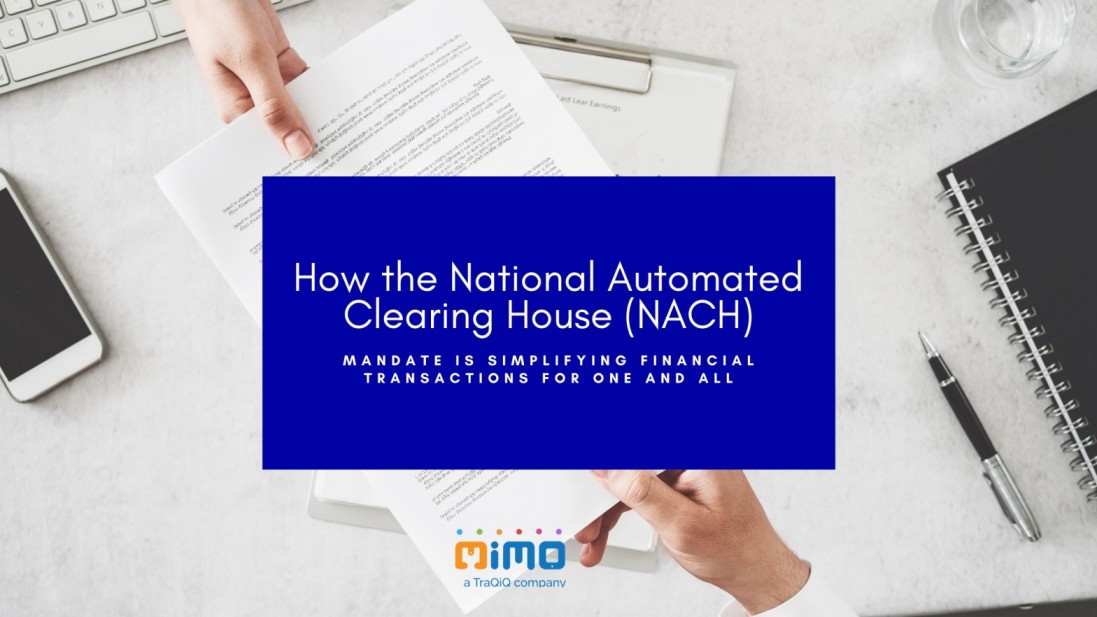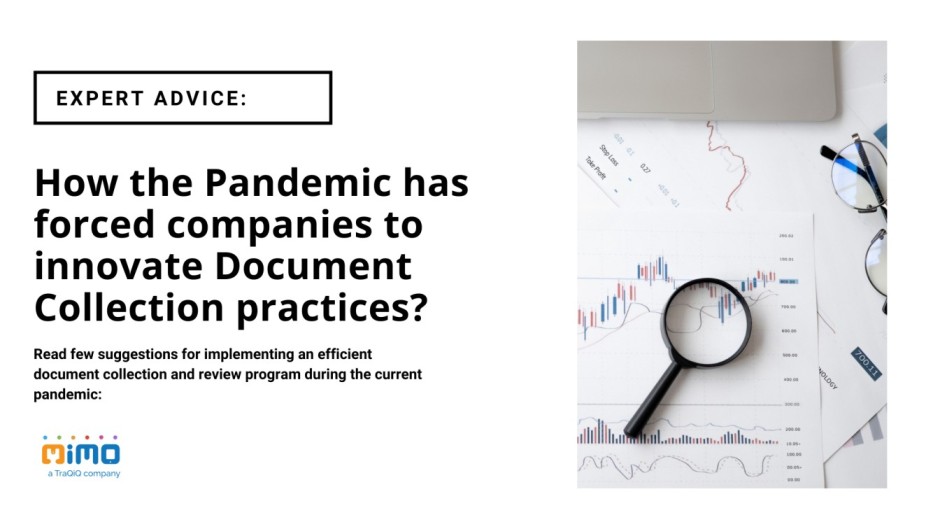
How the National Automated Clearing House (NACH) mandate is simplifying financial transactions for one and all
- July 12, 2021
- 5:26 pm
- digitization, document collection
Online financial transfers have surpassed traditional payment methods in recent years. Large sums of money can now be easily transferred across borders using an internet banking service. With the advancement of internet banking and payment systems, the use of plastic money such as debit and credit cards has skyrocketed. E.g. People can apply for a personal loan online rather than visiting a physical branch, making it more accessible to the general population.
Similarly, NACH was established to reinforce the many ECS systems that operate around the country. The National Automated Clearing House (NACH) is a clearing house system that was implemented by the National Payments Corporation of India (NPCI). NACH was created to automate and manage payments across numerous banks, as well as to manage repetitive or regular payments such as power bills, SIPs, insurance premiums, loans, and any other repeating payment.
The National Automated Clearing House (NACH) is a centralized organization that was established to integrate numerous ECS systems across the country, to provide a foundation for standardization and norms, and to reduce local barriers/inhibitors.
Table of Contents
Advantages of NACH
The NACH system is intended to have a national footprint and will cover all core banking-enabled bank branches across the country, regardless of location. NACH is a fast and efficient clearing platform that was designed to make payments easier and more cost-effective.
- Avoid the excessive interchange fees charged by credit card companies.
- Avoid using paper-based cheques from banks and financial institutions.
- Allows for direct transfers of subsidies to Aadhaar-Linked Bank Accounts.
- Allows for extremely safe and fast transactions.
- It aids in the processing of recurring payments.
How NACH works
Step 1
The corporate
(or money-collecting agency) collects the NACH mandate form from customers.
Step 2
The corporate verify the details provided by the customer in the mandate form.
Step 3
After verification of details, the corporate forwards the NACH mandate to its bank.
Step 4
The corporate’s
bank then shares the NACH mandate with the NPCI.
Step 5
Once the information is validated, the NPCI forwards the mandate to the customer’s bank for approval.
Step 6
Once approved by the customer’s bank, the corporate is authorized to collect funds from the customer’s account.
NACH is being adopted to assist anyone who makes substantial monthly payments. The NACH system benefited customers, banks, and organizations all equally.
For Consumers
- A payment transfer method that is automated to make payments easier and simpler to handle.
- A more rapid procedure that can be performed in a single day.
- Customers can utilize the auto-debit option to prevent having to recall payment dates for EMIs, invoices, taxes, and other recurring payments.
For Organizations
- By eliminating the requirement for cheques and clearing, the online approach speeds up the process.
- Payments such as dividends, salaries, and bonuses can be approved and sent in less time.
- Makes grant and subsidy payments more convenient and timelier for recipients.
- The simplicity with which client invoices can be paid increases customer satisfaction.

For Banks
- Faster payment acceptance strengthens customer relationships and guarantees that corporate clients receive timely services.
- The use of less paperwork, such as a cheque, minimizes complexity and time requirements.
- Online transactions make doing business simpler and easier for all parties.
- Reduces the possibility of fraud and theft.
As we can see, NACH Mandate offers several benefits for both customers and businesses. It also simplifies the organization and monitoring of every transaction by banks. NACH Mandate has become a significant component of the personal loan procedure because it enables timely payment of EMIs and other recurring payments.
It protects parties who deal with huge numbers of transactions on a daily basis. Every small or large firm can benefit from NACH’s unified settlement system for the secure payment and collection of payments at regular intervals. The RBI governs the NACH system, making it a centralized institution for monitoring and managing all transactions in the country.
How can MIMO help in this process?
The collection and verification of proper documentation are critical to the success of any company. MIMO can verify, compile, and deliver required documents to you, as well as ensure that they are obtained, managed, and supplied on time.
MIMO has extensive experience in the finance industry, which includes institutions such as banks, microfinance institutions, and non-bank financial companies (NBFCs).
Our services in this domain include:
- NACH Pickup
- Loan Application & Documentation
- Agreements
- Cheque Pickup
- Credit Card Application & Documentation
- Business Documents
- KYC Documents
For more info on NACH and other document collection services
Click HereLike this article?
- By eliminating the requirement for cheques and clearing, the online approach speeds up the process.
- Payments such as dividends, salaries, and bonuses can be approved and sent in less time.
- Makes grant and subsidy payments more convenient and timelier for recipients.
- The simplicity with which client invoices can be paid increases customer satisfaction.
More To Explore

What Factors Should Organizations Consider Before Outsourcing Their Internal Audit Functions?
+91 1141182211 Outsourcing has become a strategic choice for many organizations looking to streamline operations, reduce costs, and enhance efficiency.

Outsourcing Internal Audit: Evaluating the Upsides and Downsides for Your Organization
+91 1141182211 In today’s dynamic business environment, companies face increasing pressure to enhance efficiency, manage risks effectively, and ensure compliance

A Background Verification Guide: Frequently Asked Questions and Their Answers
+91 1141182211 Background verification (BGV) is a crucial process used by employers to ensure they are hiring candidates with accurate


